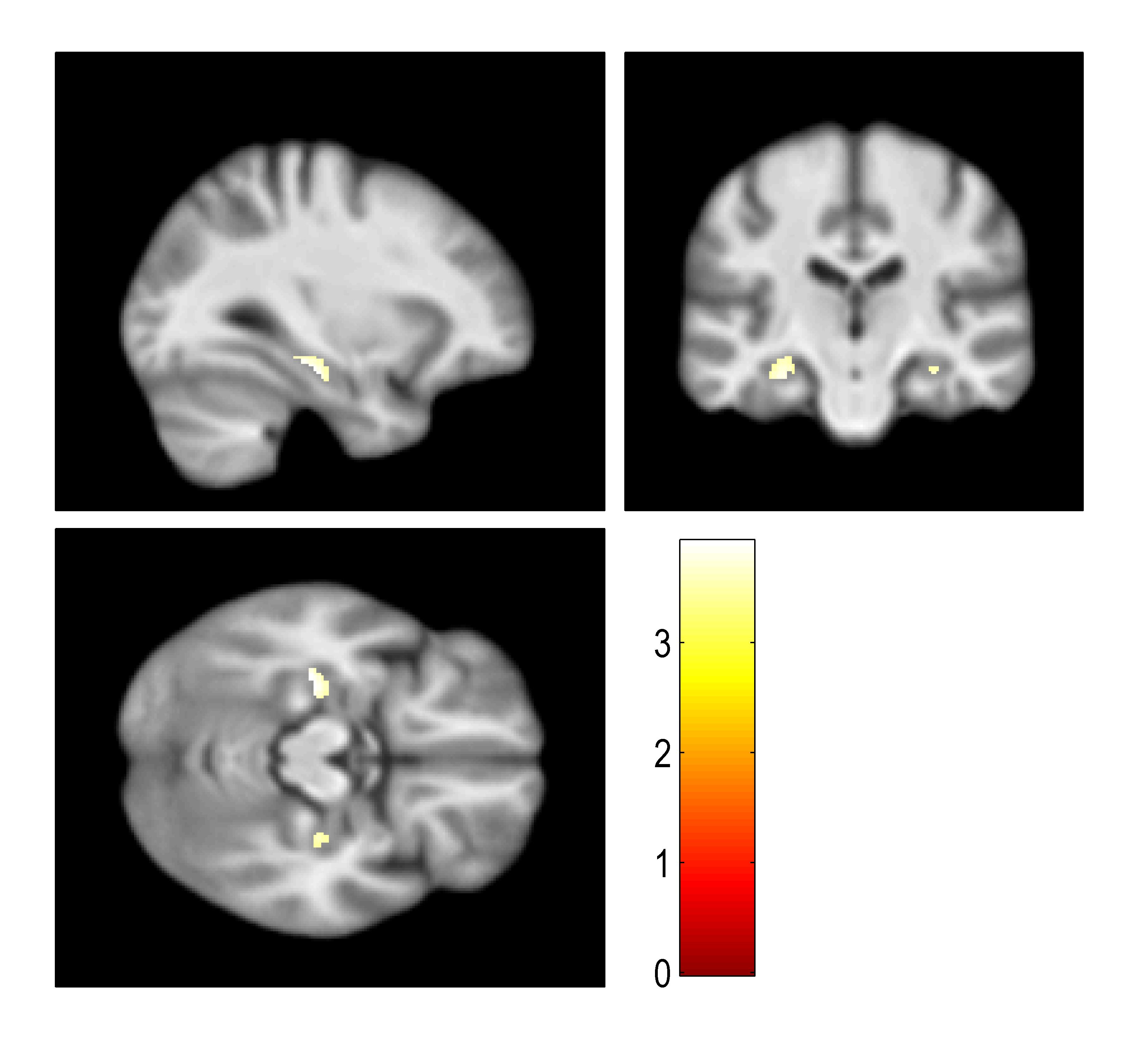Session Information
Session Type: Abstract Submissions (ACR)
Background/Purpose:
Antibodies against the NR2 subtype of the NMDA-receptor (anti-NR2 antibodies) are detected in patients with systemic lupus erythematosus (SLE) and primary Sjögren’s syndrome (SS). It is known from murine lupus models that these antibodies can cause hippocampal atrophy and cognitive impairment when they gain access to the brain. Reduced hippocampal volumes have been described in both SLE and primary SS patients; but a link between anti-NR2 antibodies and hippocampal atrophy has never been described in humans until now.
Methods:
A population-based cohort of 50 SLE (all fulfilling the ACR criteria) and 50 primary SS patients (all fulfilling the AECG criteria) were clinically examined and cerebral MRI scanning performed. Anti-NR2 antibodies were measured in cerebrospinal fluid (CSF). We applied the SPM8 software and compared hippocampal volumes between patients with and without anti-NR2 antibodies.
Results:
16 % of the SLE patients and 12 % of the primary SS patients had anti-NR2 antibodies in CSF. Patients with anti-NR2 antibodies had less grey matter in their hippocampi compared to patients without these antibodies. There were no differences in grey matter volumes in other areas of the brain. Hippocampal grey matter volumes did not differ between the two total groups of SLE and primary SS patients, and there were no statistical significant interactions between groups and anti-NR2 antibodies. No effect on hippocampal volumes were found for presence of anti-phospholipid antibodies, disease duration, or present use of corticosteroids.
Conclusion:
Less hippocampal grey matter is observed in SLE and primary SS patients with anti-NR2 antibodies compared to those without these antibodies. This indicates that anti-NR2 antibodies may cause neuronal death in humans, as previously demonstrated in mice with autoimmune disease.
Figure 1:
Clusters of voxels with GM loss in patients with anti-NR2 antibodies (p < 0.05, FWE corrected). The cluster color represents the statistical significance of GM decrease according to the gradation of the color bar.
Disclosure:
M. B. Lauvsnes,
None;
M. K. Beyer,
None;
J. T. Kvaløy,
None;
O. J. Greve,
None;
S. Appenzeller,
None;
E. Harboe,
None;
A. B. Tjensvoll,
None;
L. G. Gøransson,
None;
R. Omdal,
None.
« Back to 2014 ACR/ARHP Annual Meeting
ACR Meeting Abstracts - https://acrabstracts.org/abstract/hippocampal-atrophy-is-associated-with-anti-nr2-antibodies-in-patients-with-systemic-lupus-erythematosus-and-primary-sjogrens-syndrome/

